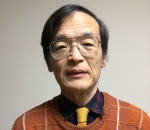以下は大雑把な英語版です。
知ってる内容を英語ルートで理解。洋画で字幕を読んで英語を聞くように。
日本語の内容はこちらから
↓ ↓ ↓
https://worldlife.jp/archives/13685
Hello! I hope you’re doing well. I want to tell you about something that happened at the beginning of the year in Japan. There was a big earthquake in the Noto peninsula, up in the north of Japan.
People all over Japan were celebrating New Year with their families or by themselves when they heard the news about the earthquake. It must have been scary for them.
I felt sad when I heard that many people couldn’t go back to their normal lives after the earthquake. Some people didn’t have proper beds to sleep on and had to sleep on cardboard instead. Can you imagine sleeping on cardboard? It must be very cold.
I was curious about how it would feel to sleep on cardboard, so I decided to try it. I found the only cardboard factory in the area and asked for a sample of big cardboard. They said I could come back in two days to get it. I was happy they agreed.
While I waited, I learned something interesting about cardboard. Have you heard of “corrugated cardboard”? It’s made up of two flat pieces of cardboard with a wavy piece in the middle. The word “corrugate” comes from an old word that means to tear or crush. So, corrugated cardboard has that wavy shape because it’s been crushed or rumpled.
I also found out that some other English words have a similar root. For example, “rough” means something that’s not smooth because it’s just been made or torn. “Rag” is what you get when you tear a piece of cloth. And “ruin” is what happens when something gets torn or crushed badly.
When I finally got the cardboard from the factory, it was big enough to sleep on. I tried sleeping on it, and it was surprisingly warm. It must be because corrugated cardboard holds onto heat well.
As a thank you to the factory workers for the cardboard, I gave them some tangerine oranges. I hoped it would be a small help for the people affected by the earthquake even in a very roundabout way.
That’s all for now. Take care!
私立学校に英語教師として勤務中、40代半ばに差し掛かったころ、荒れたクラスを立て直す策として、生徒に公言して英検1級に挑戦することを思い立つ。同様の挑戦を繰り返し、退職までに英検一級(検定連合会長賞)、TOEIC満点、国連英検SA級、フランス語一級、スペイン語一級(文科大臣賞)、ドイツ語一級、放送大学大学院修士号などの成果を得る。
アメリカで生徒への対応法を学ぶ為に研修(地銀の助成金)。最新の心理学に触れた。4都県での全発表、勤務校での教員への研修を英語で行う。現在も特別選抜クラスの授業を全て英語で行っている。「どうやって単語を覚えればいいですか?」という良くある質問に答える為、印欧祖語からの派生に基づく「生徒には見せたくない語源英単語集」を執筆中。完成間近。常日頃洋書の読破で様々な思考にふれているが、そうして得た発想の一つを生かして書いた論文がコロナ対策論文として最近入賞。賞品の牛肉に舌鼓をうっている。元英検面接委員


